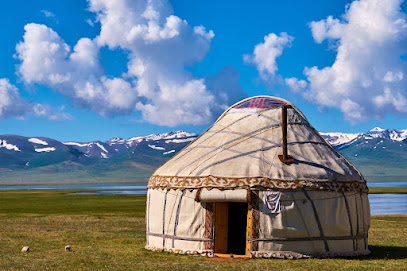
The Pristine Beauty of Son-Kul Lake
Son-Kul Lake is a hidden gem nestled in the mountains of Kyrgyzstan. This alpine lake, located at an altitude of over 3,000 meters, is surrounded by vast, green meadows and snow-capped peaks. The scenery here is breathtaking, offering a sense of peace and tranquility that is hard to find elsewhere. The lake is a popular destination for those who love nature and outdoor activities. Visitors can enjoy horseback riding, hiking, and bird watching. In the summer, the meadows around the lake are filled with wildflowers, and you can see herds of sheep and horses grazing. The local nomadic herders set up their yurts here, and you can experience their traditional way of life by staying in one of these cozy, felt-covered tents. Son-Kul Lake is also rich in cultural history. The area is dotted with ancient petroglyphs and burial mounds, providing a glimpse into the lives of the people who lived here long ago. The lake itself is considered sacred by the locals and is often the site of traditional ceremonies and rituals. Whether you are looking for adventure, relaxation, or a cultural experience, Son-Kul Lake has something to offer.
Local tips in Son-Kul Lake
- Travel during the summer months (June to September) for the best weather and access to activities.
- Pack warm clothing, even in summer, as temperatures can drop significantly at night.
- Stay in a yurt for an authentic experience of the local nomadic lifestyle.
- Bring cash, as there are no ATMs or card payment facilities in the area.
- Hire a local guide to learn more about the history and culture of the region.
The Pristine Beauty of Son-Kul Lake
Son-Kul Lake is a hidden gem nestled in the mountains of Kyrgyzstan. This alpine lake, located at an altitude of over 3,000 meters, is surrounded by vast, green meadows and snow-capped peaks. The scenery here is breathtaking, offering a sense of peace and tranquility that is hard to find elsewhere. The lake is a popular destination for those who love nature and outdoor activities. Visitors can enjoy horseback riding, hiking, and bird watching. In the summer, the meadows around the lake are filled with wildflowers, and you can see herds of sheep and horses grazing. The local nomadic herders set up their yurts here, and you can experience their traditional way of life by staying in one of these cozy, felt-covered tents. Son-Kul Lake is also rich in cultural history. The area is dotted with ancient petroglyphs and burial mounds, providing a glimpse into the lives of the people who lived here long ago. The lake itself is considered sacred by the locals and is often the site of traditional ceremonies and rituals. Whether you are looking for adventure, relaxation, or a cultural experience, Son-Kul Lake has something to offer.
When is the best time to go to Son-Kul Lake?
Iconic landmarks you can’t miss
Song-Kul
Discover the breathtaking beauty and tranquil atmosphere of Song-Kul Lake, a high-altitude paradise in Kyrgyzstan that offers adventure and cultural experiences.
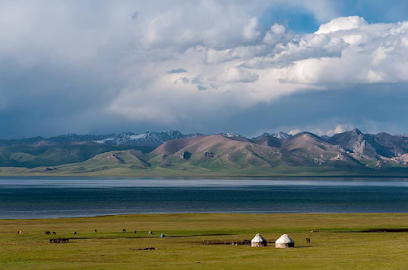
Son-Kul'
Experience the breathtaking beauty of Son-Kul Lake, a serene alpine paradise in Kyrgyzstan, offering adventure and cultural immersion amidst stunning landscapes.
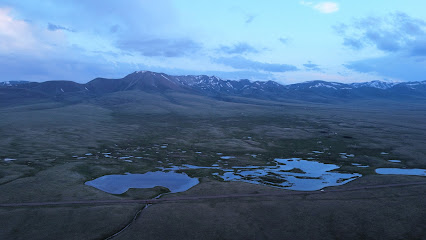
Unmissable attractions to see
Song-Kul
Explore the stunning high-altitude Song-Kul Lake, a serene and breathtaking destination in Kyrgyzstan, perfect for adventure and cultural immersion.
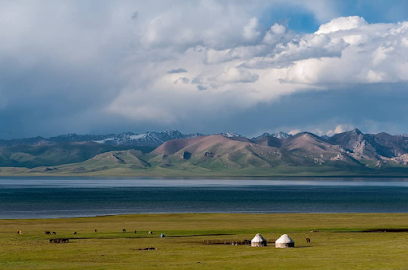
Соң-Көл
Discover the breathtaking beauty of Соң-Көл, an alpine paradise perfect for hiking, cultural experiences, and unforgettable adventures in Kyrgyzstan.
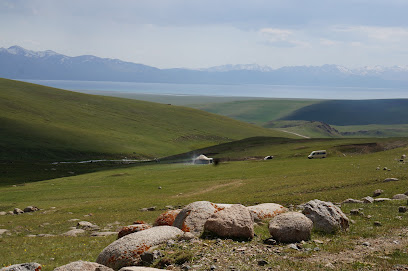
Moldo-Ashuu
Explore Moldo-Ashuu: A Nature Lover's Paradise for Hiking and Scenic Views in Ekachat, Kyrgyzstan.
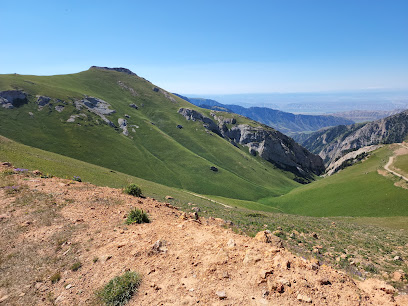
Song Kol Yurt Camp
Discover the breathtaking beauty and rich culture of Kyrgyz nomadic life at Song Kol Yurt Camp, a serene alpine getaway.
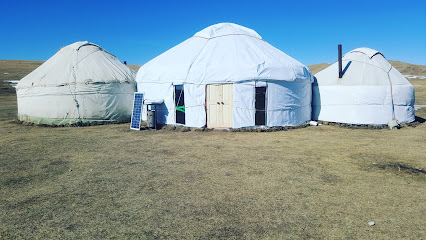
Batayaral
Discover the breathtaking hiking trails and serene landscapes of Batayaral in Dzhangyaryk, a hidden gem for nature lovers and adventure seekers.
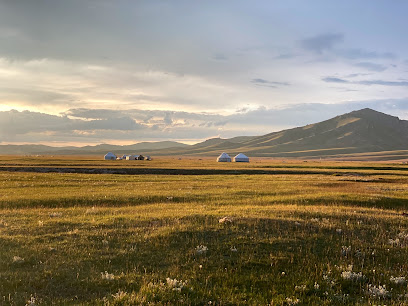
Son-Kul'
Discover the breathtaking Son-Kul Lake in Kyrgyzstan, a serene retreat surrounded by majestic mountains and rich nomadic culture, perfect for adventure.
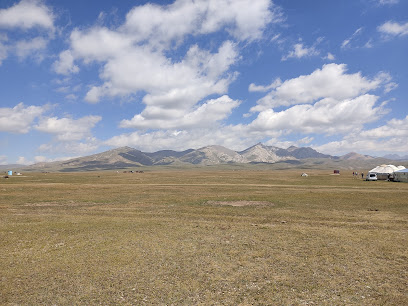
Ala Archa
Discover the breathtaking beauty of Ala Archa National Park, a serene escape into nature's wonders with stunning landscapes and thrilling outdoor adventures.
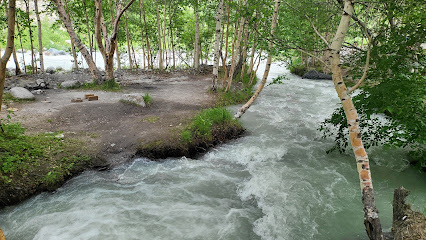
Outdoor Footgolf
Experience the fun and excitement of Outdoor Footgolf in Balykchy, where soccer meets golf in a beautiful natural setting.
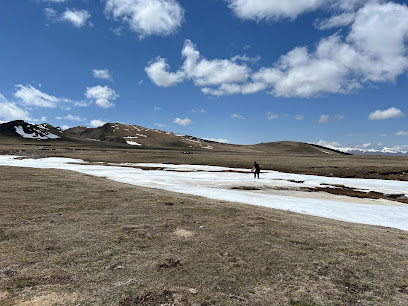
Kichi Ak-Kolot
Discover the breathtaking hiking trails and stunning landscapes at Kichi Ak-Kolot, a must-visit destination for nature lovers in Kyrgyzstan.
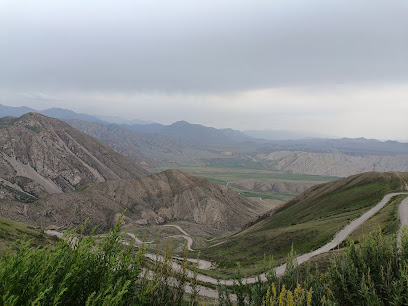
Son Kol
Explore the breathtaking landscapes of Son Kol Lake, a must-visit destination for hiking and nature lovers in Kyrgyzstan.
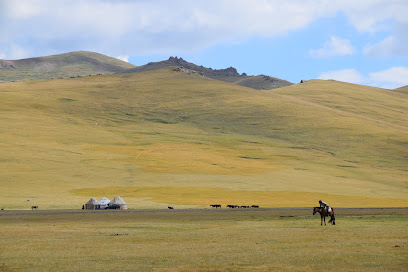
Yurt camp Zalkar
Experience the beauty of Kyrgyzstan at Yurt Camp Zalkar, a perfect destination for hiking and cultural immersion in stunning landscapes.
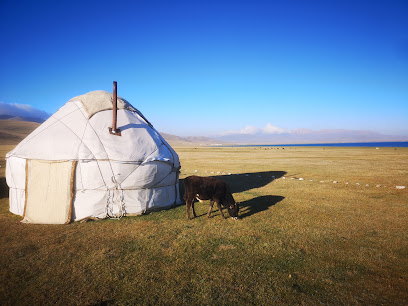
Keng Suu Valley Observation Point
Experience the serene beauty of Keng Suu Valley Observation Point, a picturesque destination in Kyrgyzstan ideal for nature lovers and photographers.
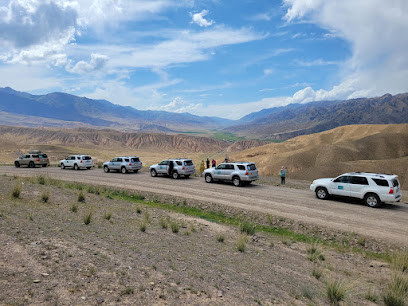
Teshik_tours
Discover the hidden hiking paradise of Kara-Unkurt, where breathtaking trails and stunning landscapes await adventurous travelers in Kyrgyzstan.
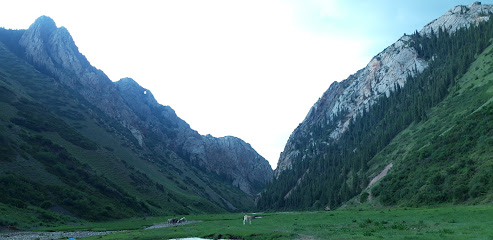
Suuga Tushkongo Kayf Zher
Explore the breathtaking landscapes and rich cultural heritage of Suuga Tushkongo Kayf Zher in Bash-Kuugandy, an untouched tourist haven.

Kekemeren canyon and viewpoint
Discover the breathtaking beauty of Kekemeren Canyon and Viewpoint, a natural wonder in Kyrgyzstan perfect for adventure and photography.
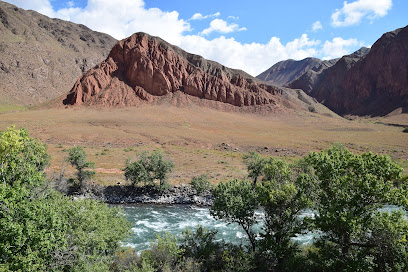
Essential places to dine
Markets, malls and hidden boutiques
Song-Kul
Experience the breathtaking beauty and nomadic culture at Song-Kul Lake, a hidden gem in the Tien Shan mountains of Kyrgyzstan.
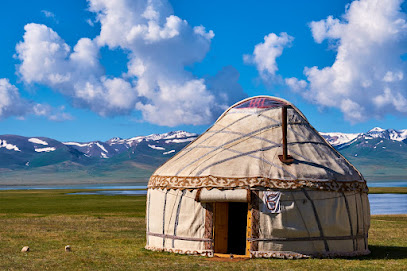
Altyn-Kol - souvenir shop, handmade wool products.
Discover the essence of Kyrgyz craftsmanship at Altyn-Kol, where handmade wool products bring the spirit of the mountains to your home.
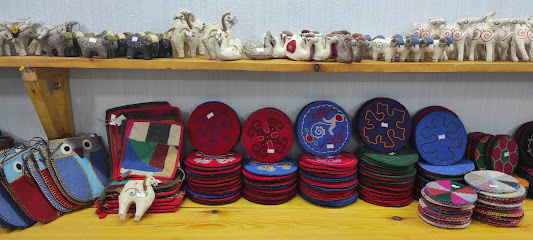
Son-Kul'
Experience the serene beauty of Son-Kul', a stunning swimming lake in Kyrgyzstan, surrounded by majestic mountains and rich nomadic culture.
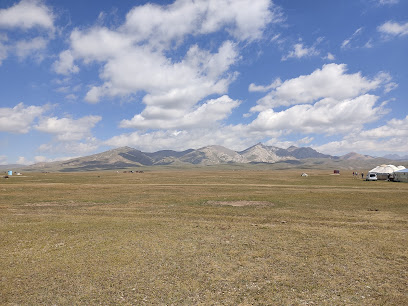
Magazin Eldik
Explore the unique offerings of Magazin Eldik in Ak-Tal, where local culture and delightful products await every tourist.
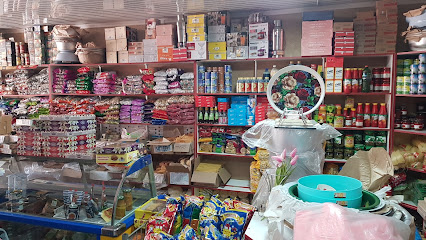
ShopHouse
Explore ShopHouse in Bagysh for a unique shopping experience filled with local crafts, culinary treasures, and cultural heritage.

Kyrgyzstan Talas
Experience the vibrant shopping and culinary culture at Kyrgyzstan Talas, a unique shopping mall in the heart of Kara-Burgon, Kyrgyzstan.

Aruuke
Discover the heart of Ak-Suu at Aruuke, a charming store offering unique local crafts and authentic souvenirs for every traveler.

Raatbek
Discover the charm of Raatbek in Ugut, where local craftsmanship meets the warmth of Kyrgyz culture for a unique shopping experience.
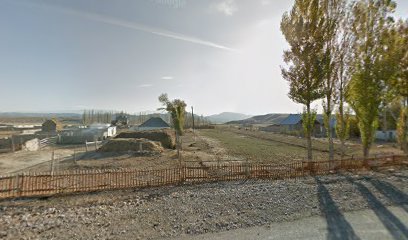
Sharshektin Uyu
Experience the delightful flavors of Sharshektin Uyu bakery in Dzhangyaryk, where fresh pastries and local delicacies await every traveler.

Dom Saparaliyeva
Explore Dom Saparaliyeva in Tugel'say for unique local crafts and a glimpse into the vibrant culture of the region.

Sh. Sadybakasov
Explore Sh. Sadybakasov in Bash-Kuugandy for an authentic shopping experience featuring local products and crafts that embody the region's culture.

Arzan
Discover the essence of local living at Arzan grocery store in Ak-Suu, your essential stop for fresh produce and regional delicacies.

Kadyraly Ayyldyk Kitep Kana
Discover an enchanting book store in Ak-Suu, offering a rich collection of local and international literature for every book lover.

Tynaliyea 94 A
Experience local culture and craftsmanship at Tynaliyea 94 A, a unique store in Кара-Бүргөн offering authentic souvenirs and gifts.

Asia mall Kyrgyzstan
Explore the delightful flavors of Kyrgyzstan at Asia Mall, a bakery offering a rich variety of traditional treats and pastries that reflect local culture.

Essential bars & hidden hideouts
Song-Kul
Discover the stunning beauty and rich culture of Song-Kul Lake, a high-altitude gem in Kyrgyzstan perfect for adventure and relaxation.
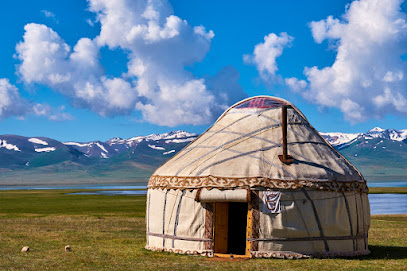
Son-Kul'
Experience the serene beauty of Son-Kul, an enchanting alpine lake in Kyrgyzstan, perfect for swimming, hiking, and cultural exploration.
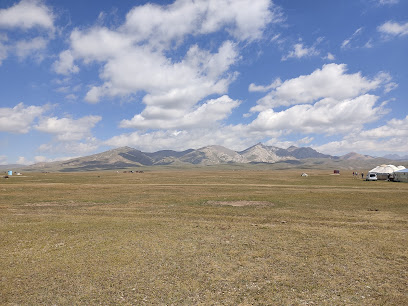
Kafe Greenbar.kochkor
Experience the cozy ambiance of Kafe Greenbar, a delightful bar in Kochkor offering refreshing drinks and a warm atmosphere for relaxation.
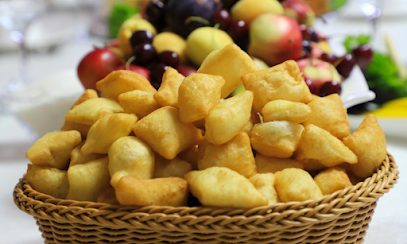
Terek Suu
Discover the vibrant bar culture of Terek Suu, where locals and tourists unite over delightful drinks in a welcoming atmosphere.

Sary Bulak
Experience the heart of Kyrgyz culture at Sary Bulak - a lively bar in Naryn that captures the essence of local hospitality and entertainment.
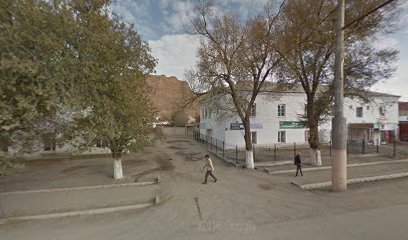
Abdusamatik
Experience the vibrant nightlife at Abdusamatik, the premier bar in Acha-Kaiyndy, where local culture meets refreshing drinks.

Kisan pohnkar
Discover the heart of Kyrgyz culture at Kisan Pohnkar, a local bar where tradition meets hospitality in Кара-Бүргөн.

121 Br
Discover the vibrant nightlife at 121 Br, a lively bar in Кара-Бүргөн offering a unique blend of local culture and refreshing drinks.

Ak Uy
Discover the lively bar scene at Ak Uy in Белый дом, where local flavors and friendly vibes meet for an unforgettable experience.

Adi
Experience the lively atmosphere of Adi Bar in Koshoy, where drinks and culture blend seamlessly for an unforgettable night out.

Abu Khanifa Metiti
Experience the vibrant atmosphere of Abu Khanifa Metiti, Kyzart's favorite bar, where local culture meets relaxation.

Dam
Discover the lively atmosphere and unique cocktails at Dam, Sadovoye's premier bar for nightlife and entertainment.
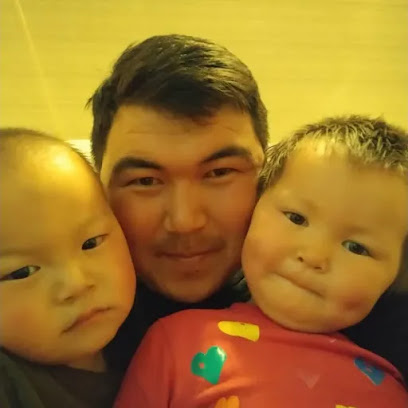
Suban
Experience the vibrant nightlife of Almaluu at Suban, where great drinks and a lively atmosphere meet local culture.

Ponttoshkon Zher
Experience the lively ambiance of Ponttoshkon Zher, a cultural bar in Kashka Suu, where authentic drinks and friendly vibes await every traveler.

Local Phrases about Son-Kul Lake
-
- HelloСалам
[Salam] - GoodbyeКош калыңыз
[Kosh kalyngyz] - YesЖок
[Jok] - NoЖок
[Jok] - Please/You're welcomeАйтсаныз рахмат
[Aitsanız rahmat] - Thank youРахмат
[Rahmat] - Excuse me/SorryКечиресиз
[Keçiresiz] - How are you?Кандайсыз?
[Kandaysız?] - Fine. And you?Жакшы. Сизде?
[Jaqşı. Sizde?] - Do you speak English?Сиз инглизче сөйлөсүңүзбү?
[Siz ingilizçe söylösüñüzbü?] - I don't understandМени күтпөйүңүз
[Meni kütpöyüñüz]
- HelloСалам
-
- I'd like to see the menu, pleaseМенинге меню көрсөтүүңүздү арзуу этпейм
[Meninge menyu körsötüüñüzdü arzuu etpeym] - I don't eat meatМен маймын каңымайм
[Men maymın kañımam] - Cheers!Токтогонуз!
[Toktogonuz!] - I would like to pay, pleaseМенинге төлөү үчүн арзуу этпейм
[Meninge tölöü üçün arzuu etpeym]
- I'd like to see the menu, pleaseМенинге меню көрсөтүүңүздү арзуу этпейм
-
- Help!Жардам!
[Jardam!] - Go away!Жолуна кет!
[Joluna ket!] - Call the Police!Полицияга чакыр!
[Politsiyaga çakır!] - Call a doctor!Докторго чакыр!
[Doktorga çakır!] - I'm lostМени колдондум
[Meni koldondum] - I'm illМен кетемин
[Men ketemin]
- Help!Жардам!
-
- I'd like to buy...Менинге сатып алуу керек...
[Meninge satıp aluu kerek...] - I'm just lookingМен тек караганча
[Men tek karagancha] - How much is it?Буштук канча болот?
[Buştuk kança bolot?] - That's too expensiveБуштук туура керек
[Buştuk tuura kerek] - Can you lower the price?Баасын төмөндөйсүүүүү?
[Baasın tömöndöysüüüü?]
- I'd like to buy...Менинге сатып алуу керек...
-
- What time is it?Саат канчада?
[Saat kançada?] - It's one o'clockБир саат
[Bir saat] - Half past (10)Ондук кыйынчы
[Onduk kıyınçı] - MorningТүн
[Tün] - AfternoonКүн
[Kün] - EveningКеч
[Keç] - YesterdayКече
[Keçe] - TodayБүгүн
[Bügün] - TomorrowЭрте
[Erte] - 1Бир
[Bir] - 2Эки
[Eki] - 3Үч
[Üç] - 4Төрт
[Tört] - 5Беш
[Beş] - 6Алты
[Altı] - 7Жети
[Jeti] - 8Сегиз
[Segiz] - 9Тогуз
[Toguz] - 10Он
[On]
- What time is it?Саат канчада?
-
- Where's a/the...?Бир/буштук... үнү кайда?
[Bir/buştuq... ünü kayda?] - What's the address?Дарек нере?
[Darek nere?] - Can you show me (on the map)?(Картада) Менен берсеңиз?
[(Kartada) Menen bersengiz?] - When's the next (bus)?Кийинки (автобус) канда?
[Kiynki (avtobus) kanda?] - A ticket (to ....)Билет (....га)
[Bilet (....ga)]
- Where's a/the...?Бир/буштук... үнү кайда?
History of Son-Kul Lake
-
Son-Kul Lake, nestled at an altitude of 3,016 meters, was formed during the late Pleistocene epoch. The lake is primarily fed by underground springs, and its geological origins can be traced back to tectonic activities that created this stunning alpine lake surrounded by mountain ranges. The pristine waters and natural beauty have been preserved through millennia, making it a geological gem in Kyrgyzstan.
-
For centuries, Son-Kul Lake has been a summer pasture (jailoo) for nomadic herders. The lake's lush meadows provide an ideal grazing ground for livestock, including sheep, goats, and horses. The semi-nomadic Kyrgyz people have practiced transhumance, moving their herds to higher altitudes during the summer months. This tradition continues to be a vital part of the region's cultural heritage, and visitors can witness the yurts dotting the landscape, offering a glimpse into the timeless lifestyle of the Kyrgyz nomads.
-
Son-Kul Lake lies not far from the ancient routes of the Great Silk Road, which connected the East and West for trade and cultural exchanges. Although not a primary route, the proximity to these trade networks meant that the area around Son-Kul Lake was influenced by the diverse cultures and peoples that traversed Central Asia. Artifacts and historical records suggest that the region was a melting pot of cultures, benefiting from the rich exchanges brought about by Silk Road commerce.
-
During the Soviet era, Kyrgyzstan saw significant changes, including the development of infrastructure and collective farming. The Soviet government established several state-run farms (kolkhozes) and introduced mechanized agriculture in the region. While Son-Kul Lake remained relatively untouched due to its remote location, the surrounding areas saw changes in land use and agricultural practices. The Soviet influence also brought about educational and cultural shifts that impacted the local communities.
-
In recent years, Son-Kul Lake has gained recognition for its ecological and cultural significance. Various conservation efforts have been undertaken to preserve the lake's pristine environment and the traditional way of life of the Kyrgyz nomads. Eco-tourism initiatives have been introduced to ensure sustainable development while protecting the natural habitat. The lake is now part of several protected areas, and visitors are encouraged to respect the local customs and the fragile ecosystem.
Son-Kul Lake Essentials
-
Son-Kul Lake is located in the Naryn Province of Kyrgyzstan, approximately 300 kilometers from the capital city, Bishkek. The journey typically involves a combination of road travel and a bit of off-road adventure. From Bishkek, you can hire a vehicle or take a shared taxi (known locally as a 'marshrutka') to the town of Kochkor, which is about a 4-hour drive. From Kochkor, the journey continues with a 3-4 hour drive on rough terrain that is best navigated with a 4x4 vehicle. Some tour operators offer organized trips that include transportation to and from the lake.
-
Once at Son-Kul Lake, transportation options are limited. The best way to explore the area is on foot, horseback, or by hiring local guides with suitable vehicles. Horses can be rented from local shepherds or through tour operators. For a more immersive experience, consider joining a guided horseback tour, which allows you to cover more ground and see areas that are less accessible by vehicle.
-
The official currency in Kyrgyzstan is the Kyrgyzstani Som (KGS). Credit cards are rarely accepted in rural areas, including around Son-Kul Lake. It is essential to carry enough cash for your entire trip, as there are no ATMs or banking facilities in the vicinity of the lake. It is advisable to withdraw sufficient funds in Bishkek or larger towns before heading to Son-Kul.
-
Son-Kul Lake is generally a safe destination for tourists. However, it is a remote area, so it's crucial to take standard safety precautions. Ensure that you have a reliable means of communication, such as a satellite phone, as mobile reception is limited. Avoid hiking alone and always inform someone of your plans. There are no known high-crime areas targeting tourists, but it is always wise to stay vigilant and secure your belongings.
-
In case of an emergency, it is essential to have a plan in place due to the remote location of Son-Kul Lake. The nearest medical facilities are in the towns of Naryn or Kochkor, several hours away by vehicle. Ensure you have travel insurance that covers emergency evacuations. For minor injuries or health issues, carry a well-stocked first aid kit. In case of serious emergencies, contact the local tour operators or guides who can assist in arranging transportation to medical facilities.
-
Fashion: Do dress in layers as the weather can change rapidly. Avoid wearing overly flashy or revealing clothing. Religion: Do respect local customs and traditions, especially when interacting with nomadic families. Public Transport: Do be patient and flexible with transportation schedules as they can be unpredictable. Greetings: Do greet people with a smile and a handshake. A slight bow of the head is also a sign of respect. Eating & Drinking: Do try the local cuisine, including kumis (fermented mare's milk) and beshbarmak (a traditional meat dish). Don't refuse food or drink offerings, as it is considered impolite.
-
To experience Son-Kul Lake like a local, consider staying in a yurt, which is the traditional dwelling of the Kyrgyz nomads. Engage with the local shepherds and learn about their way of life. Participate in traditional activities such as horse riding, eagle hunting demonstrations, or milking livestock. Sunrise and sunset are magical times at the lake, offering stunning photo opportunities. Don't miss the chance to hike to nearby viewpoints for panoramic views of the lake and surrounding mountains.
Nearby Cities to Son-Kul Lake
-
Things To Do in Kyzyl-Oi
-
Things To Do in Tokmok
-
Things To Do in Kemin
-
Things To Do in Bishkek
-
Things To Do in Cholpon-Ata
-
Things To Do in Jalal-Abad
-
Things To Do in Osh
-
Things To Do in Andijan
-
Things To Do in Karakol
-
Things To Do in Namangan
-
Things To Do in Angren
-
Things To Do in Shymkent
-
Things To Do in Chirchiq
-
Things To Do in Khujand
-
Things To Do in Tashkent





